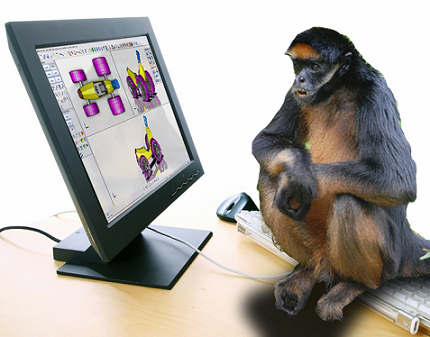Make Time for the Work That Matters (Post 3 of 4)
 The self-assessment tool that I reproduced in my last post, developed by workplace productivity experts Julian Birkinshaw and Jordan Cohen, is a variant of the classic Start/Stop/Continue exercise. Birkinshaw and Cohen adapted the exercise to help knowledge workers make “small but significant changes to their day-to-day schedules.”
The self-assessment tool that I reproduced in my last post, developed by workplace productivity experts Julian Birkinshaw and Jordan Cohen, is a variant of the classic Start/Stop/Continue exercise. Birkinshaw and Cohen adapted the exercise to help knowledge workers make “small but significant changes to their day-to-day schedules.”
In the Harvard Business Review article, “Make Time for the Work that Matters,” (9/13), the authors describe how Cohen worked with 15 executives at Pfizer to implement the tool, achieving “remarkable results.” They describe their process as follows:
- Identify low-value tasks
- Decide whether to drop, delegate, or redesign
- Off-load tasks
- Allocate freed-up time
- Commit to your plan
Their research suggests that at least one-quarter of a typical knowledge worker’s activities fall into either the “not that important to you or the firm” category or the “relatively easy to drop” category. On this basis, they surmise that most workers should be able to free up to 10 hours per week with no negative impact on productivity—leaving valuable time for more mission-critical tasks.
In my experience, deciding whether to drop, delegate or redesign a task is where this process can fall apart if not done carefully. The authors recommend sorting the low-value tasks into three categories: quick kills (things you can stop doing now with no negative effects), off-load opportunities (tasks that can be delegated with minimal effort), and long-term redesign (work that needs to be restructured or overhauled).
They write that, at Pfizer anyway, keys to successfully working this process included “reflecting carefully on your real contributions,” asking ‘should I be doing this in the first-place?’ and ‘can my subordinate do this?’”
Offloading tasks was the most challenging aspect for many of the Pfizer executives. They had to learn when to delegate and how to continue to “push, prod and chase.” Even so, they delegated from 2% to 20% of their work with no decline in productivity.
So what did these executive do with all their new-found time? They were advised to write down two or three they should have been doing but were not, and to keep a log to assess whether they were using their now more accommodating schedule in the best possible way.
Some of the study participants were able to go home earlier, which the authors believed probably made them happier and more productive the next day. Some reported that their time “was swallowed up by unforeseen events, but more than half reclaimed the extra time to do better work.”
The authors counseled that the last step, committing to the new plan, should be shared with a boss, colleague or mentor. “Without this step, it’s all too easy to fall back into bad habits,” they warn.
In summary, Birkinshaw and Cohen write,
“With relatively little effort and no management directive, the small intervention we propose can significantly boost productivity among knowledge workers. Such shifts are not always easy, of course. . . but all participants (in the Pfizer study) agreed that the exercise was a ‘useful forcing mechanism’ to help them become more efficient, effective, and engaged employees and managers. To do the same, you don’t need to redesign any parts of an organization, reengineer a work process, or transform a business model. All you have to do is ask the right questions and act on the answers. After all, if you’re a knowledge worker, isn’t using your judgment what you were hired for?”
In my next post I will share how Intertech keeps the focus on the work that matters.